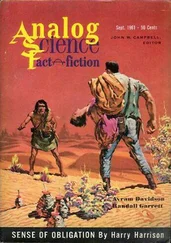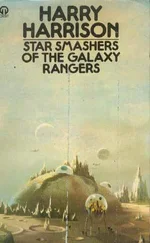M Harrison - Viriconium
Здесь есть возможность читать онлайн «M Harrison - Viriconium» весь текст электронной книги совершенно бесплатно (целиком полную версию без сокращений). В некоторых случаях можно слушать аудио, скачать через торрент в формате fb2 и присутствует краткое содержание. Жанр: Фэнтези, на английском языке. Описание произведения, (предисловие) а так же отзывы посетителей доступны на портале библиотеки ЛибКат.
- Название:Viriconium
- Автор:
- Жанр:
- Год:неизвестен
- ISBN:нет данных
- Рейтинг книги:3 / 5. Голосов: 1
-
Избранное:Добавить в избранное
- Отзывы:
-
Ваша оценка:
- 60
- 1
- 2
- 3
- 4
- 5
Viriconium: краткое содержание, описание и аннотация
Предлагаем к чтению аннотацию, описание, краткое содержание или предисловие (зависит от того, что написал сам автор книги «Viriconium»). Если вы не нашли необходимую информацию о книге — напишите в комментариях, мы постараемся отыскать её.
Viriconium — читать онлайн бесплатно полную книгу (весь текст) целиком
Ниже представлен текст книги, разбитый по страницам. Система сохранения места последней прочитанной страницы, позволяет с удобством читать онлайн бесплатно книгу «Viriconium», без необходимости каждый раз заново искать на чём Вы остановились. Поставьте закладку, и сможете в любой момент перейти на страницу, на которой закончили чтение.
Интервал:
Закладка:
The Metal-Salt Marshes, Fenlen Island, the Great Brown Waste: the borders of regions as exotic as this are drawn differently on the maps of competing authorities, but they are at least bounded in the conventional sense. Allman’s Heath, whose borders can be agreed by everyone, does not seem to be. Neither does it seem satisfactory now to say that while those deserts lie outside the city, Allman’s Heath lies within it.
The night was quiet.
Five to eleven, and except where the weir agitated its surface, the canal at Allman’s Reach was covered with the lightest and most fragile web of ice. A strong moon cast its blue and gamboge light across the boarded-up fronts of the houses by the towpath. They don’t look as if much life ever goes on in them, thought the watchman, an unimaginative man at the beginning of his night’s work, which was to walk from there up to the back of the Atteline Quarter (where he could get a cup of tea if he wanted one) and down again. He banged his hands together in the cold. As he stood there he saw three figures wade into the water on the other side of the canal.
They were only ten yards upstream, between him and the weir, and the moonlight fell on them clearly. They were wrapped up in cloaks and hoods, “like brown-paper parcels, or statues tied up in sacks,” he insisted later, and under these garments their bodies seemed to be jerking and writhing in a continual rhythmic motion, though for him it was too disconnected to be called a dance. The new ice parted for them like damp sugar floating on the water. They paid no attention to the watchman, but forded the canal, tallest first, shortest last, and disappeared down the cinder lane which goes via Orves and the observatory to the courtyard near the Plain Moon Cafe.
The watchman rubbed his hands and looked round for a minute or two, as if he expected something else to happen. “Eleven o’clock,” he called at last, and though he couldn’t commit himself to a description which seemed so subject to qualification as to be in bad faith, added: “And all’s all.”
A YOUNG MAN’S JOURNEY TO VIRICONIUM
On the day of the enthronement of the new archbishop, the “badly decomposed” body of a man was found on the roof of York Minster by a TV technician. He had been missing for eight months from a local hospital. He had fallen, it was said, from the tower; but no one had any idea how he had come to be there. I heard this on the local radio station in the day; what excited me about it was that they never repeated the item, and no mention of it was made either on the national broadcasts later in the day, or in the coverage of the ceremony itself. Mr. Ambrayses was less impressed.
“A chance in a thousand it will be of any use to us,” he estimated. “One in a thousand.”
I went to York anyway, and he came with me for some reason of his own-he paid visits to a secondhand bookshop and a taxidermist’s. The streets were daubed with political slogans; even while the ceremony was going on, council employees were working hard along the route of the procession to paint them out. The man on the roof, I discovered, had been missing from an ordinary surgical unit, so I had had the journey for nothing, as Mr. Ambrayses predicted. What interested us at that time was any event connected with a mental or-especially-a geriatric home.
“We all want Viriconium,” Mr. Ambrayses was fond of saying. “But it is the old who want it most!” That night on the way home he added,
“No one here needs it. Do you see?”
The 11:52 Leeds stopping train was full of teenagers. The older boys looked confused and violent in their short haircuts, faces and jaws thrown forward purple and white with cold; the girls watched them slyly, shrieked with laughter, then looked down and picked at their fingerless gloves. They stuck their heads out of the windows and shouted, ‘Fuck off!’ into the rush of air. Later when we got off the train we saw them hopping backwards and forwards over a metal barrier in the sodium light; unfathomable and energetic as grasshoppers in the sun. Sensing my disappointment Mr. Ambrayses said gently, “On occasion we all want to go there so badly that we will invent a clue.”
“I’m not old,” I said.
Mr. Ambrayses had lived next door to me for two years. At first I was only aware of him when I was trying to watch the news. A body under a coloured blanket, slumped at the foot of a corrugated iron fence; the camera moving in on a small red smear like a nosebleed cleaned up with lavatory paper, then as if puzzledly on to helicopters, rubble, someone important being ushered into a building, a woman walking past the end of a street. Immediately Mr. Ambrayses’s low appreciative laughter would come “Hur hur hur” through the thin partition wall, so that I lost the thread. “Hur hur,” he would laugh, and I felt as if I was watching a television in a foreign country. He liked only the variety shows and situation comedies.
His laughter seemed to sensitise me to him, and I began to see him everywhere, like a new word I had learned: in his garden where the concrete paths, glazed with rain, reflected the sky; in Marie’s cafe, a middle-aged man in a dirty suede coat, with jam on his fingers-licking at them with short dabbing licks like a child or an animal; in Sainsbury’s food hall with an empty metal basket in the crook of his arm, staring up and down the tinned-meat aisle. He didn’t seem to have anything to do. I saw him on a day-trip bus to Matlock Bath, wearing one sheepskin mitten. His trousers, which were much too large for him, so that the arse of them hung down between his legs in a gloomy flap, were sewn up at the back with bright yellow thread as coarse as string. The bus was full of old women who nodded and smiled and read all the signs out to one another as if they were constructing or rehearsing between them the landscape as they went through it.
“Oh, look, there’s the ‘Jodrell Arms’!”
“… the ‘Jodrell Arms.’ ”
“And there’s the A623!”
“… A623.”
The first time we spoke, Mr. Ambrayses told me, “Identity is not negotiable. An identity you have achieved by agreement is always a prison.”
The second time, I had been out buying some Vapona. The houses up here, warm and cheerful as they are in summer, become in the first week of September cold and damp. Ordinary vigorous houseflies, which have crawled all August over the unripe lupin pods beneath the window, pour in and cluster on any warm surface, but especially on the floor near the electric fire, and the dusty grid at the back of the fridge; they cling to the side of the kettle as it cools. That year you couldn’t leave food out for a moment. When I sat down to read in the morning, flies ran over my outstretched legs.
“I suppose you’ve got the same problem,” I said to Mr. Ambrayses. “I poison them,” I said, “but they don’t seen to take much notice.” I held up the Vapona, with its picture of a huge fly. “Might as well try again.”
Mr. Ambrayses nodded. “Two explanations are commonly offered for this,” he said:
“In the first we are asked to imagine certain sites in the world-a crack in the concrete in Chicago or New Delhi, a twist in the air in an empty suburb of Prague, a clotted-milk bottle on a Bradford tip-from which all flies issue in a constant stream, a smoke exhaled from some appalling fundamental level of things. This is what people are asking-though they do not usually know it-when they say exasperatedly, Where are all these flies coming from? Such locations are like the holes in the side of a new house where insulation has been pumped in: something left over from the constructional phase of the world.
“This is an adequate, even an appealing model of the process. But it is not modern; and I prefer the alternative, in which it is assumed that as Viriconium grinds past us, dragging its enormous bulk against the bulk of the world, the energy generated is expressed in the form of these insects, which are like the sparks shooting out from between two huge flywheels that have momentarily brushed each other.”
Читать дальшеИнтервал:
Закладка:
Похожие книги на «Viriconium»
Представляем Вашему вниманию похожие книги на «Viriconium» списком для выбора. Мы отобрали схожую по названию и смыслу литературу в надежде предоставить читателям больше вариантов отыскать новые, интересные, ещё непрочитанные произведения.
Обсуждение, отзывы о книге «Viriconium» и просто собственные мнения читателей. Оставьте ваши комментарии, напишите, что Вы думаете о произведении, его смысле или главных героях. Укажите что конкретно понравилось, а что нет, и почему Вы так считаете.











